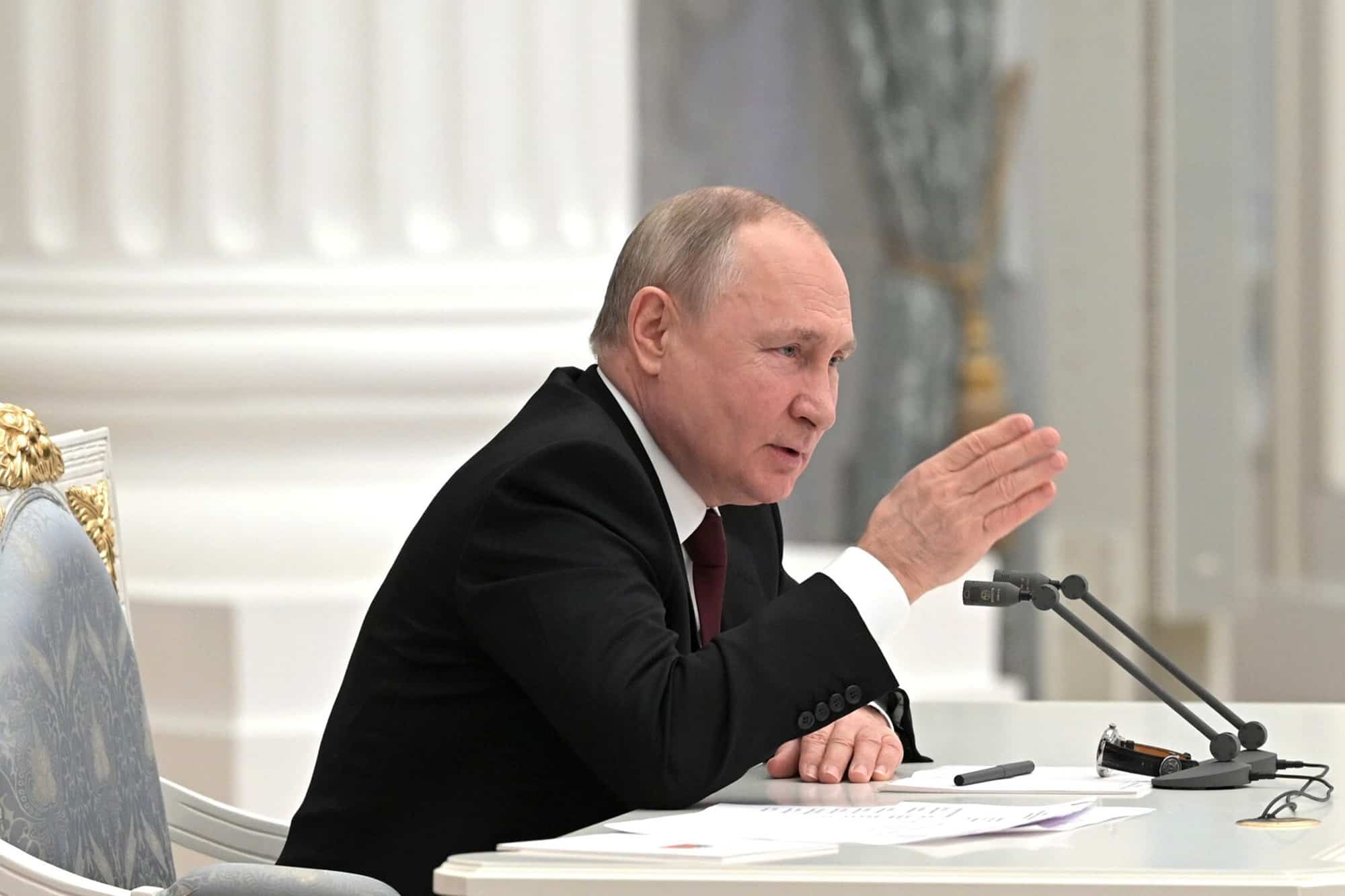The Biden administration pledged to impose harsh economic sanctions on Russia over its invasion of Ukraine, which began in earnest on Thursday morning.
But billionaire oligarchs close to Russian President Vladimir Putin could potentially blunt the effects of the sanctions thanks to cryptocurrency, according to experts.
The decentralized nature of digital currencies like bitcoin and ethereum allows governments and non-governmental entities alike the benefit of peer-to-peer transactions — regardless of whether they are cut off from traditional banking services.
“Neither dictators nor human rights activists will encounter any censor on the bitcoin network,” Matthew Sigel of investment manager VanEck told Bloomberg.
Cryptocurrencies, which are digital assets that use cryptography to mask their users, are reliant on blockchain technology, whereby data is available on a public ledger but is stored in a way that lets users adopt pseudonyms.
These pseudonyms are attached to digital “wallets” that are used to transact cryptocurrency. If the owner of a wallet is identified, they could simply trade in crypto using another wallet, which can be opened quite easily.
That is why digital currencies have become the preferred method of money laundering by some international criminals. Other governments that have been the targets of sanctions, including Iran and North Korea, have relied on digital currency to mitigate their effects.
So-called fiat currencies — like the dollar, yen and euro — need to move through third-party institutions that can track them, while cryptocurrencies can be sent from one person to another without any limitations.
“If two people or organizations want to do business with each other and are not able to do so through the banks, they can do it with bitcoin,” said Mati Greenspan, CEO of financial advisory firm Quantum Economics.
“If a wealthy individual is concerned that their accounts may be frozen due to sanctions, they can simply hold their wealth in bitcoin in order to be protected from such actions.”
So far, Russian authorities have been lukewarm to cryptocurrency for fear that giving citizens another avenue of financial transactions would dilute the government’s grip on domestic monetary policy.
There is also disagreement within Russia as to the best way to regulate cryptocurrency, which the central bank in Moscow views as a pyramid scheme.
In October 2020, the Russian central bank announced that it would create a new “digital ruble” that would make its economy less dependent on the US dollar. China, Russia’s main trading partner, has already created its own digital currency.
It has been reported that 17 million digital-savvy Russians who are connected to the internet own some $23 billion worth of cryptocurrency.
Russia has also been suspected of being a global hub of ransomware attacks that have netted cybercriminals around $400 million worth of cryptocurrency last year alone, according to Chainalysis, a firm that tracks blockchain transactions.
Chainalysis has reported that cybercriminals in Russia have become reliant on Hydra, a crypto-powered marketplace that can be found on the dark web, making it difficult for authorities to trace.
“The lessening of US sanctions power comes from a system where these nation-states are able to do transactions without going through the global banking system,” Yaya Fanusie of the Center for a New American Security told the New York Times.
President Biden on Thursday announced sanctions that would effectively deny Russian oligarchs considered Putin cronies as well as large Russian banks access to the Western financial system.
Biden stopped short of expelling Russia from the Society for Worldwide Interbank Financial Telecommunication (SWIFT), which is used by average citizens and regular businesses to execute global bank transactions.
It is not known just how much cryptocurrency is held by Russian oligarchs who would be targeted by sanctions.

